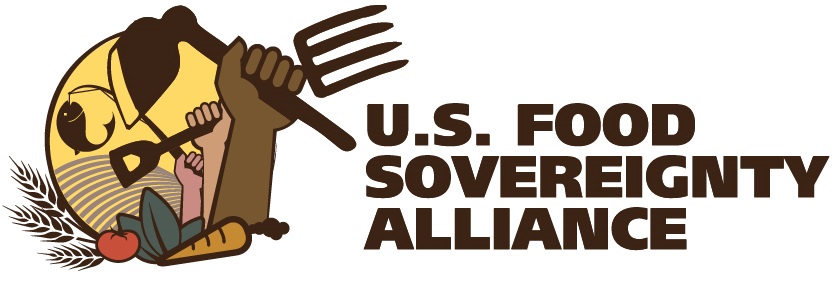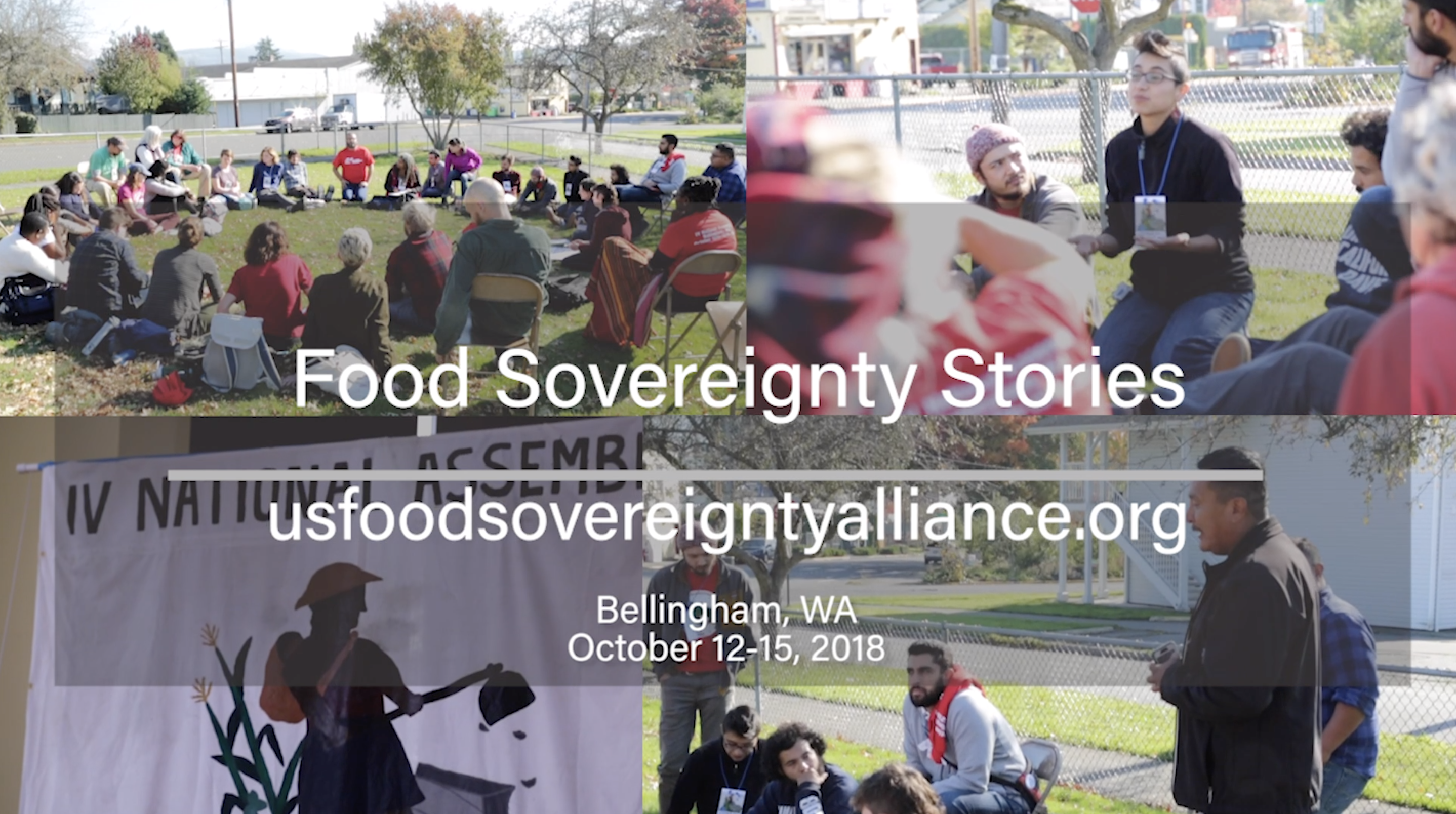For Jonathan Roberts, a member of the Detroit Food Policy Council, food issues are inseparable from the labor that goes into producing, distributing, and preparing and serving food. That’s why he believes that any conversation around food sovereignty must integrate food worker rights and the perspectives of the people—often poor people and people of color—working throughout the food chain.
“Our system doesn’t work without human labor. And it’s a labor of love, but it’s also a labor of pain and oppression and slavery,” Jonathan said during the U.S. Food Sovereignty Alliance Assembly in Bellingham, Washington, in October 2018.
“My entire family was born into the food economy through slavery,” he continued, sharing the story of one of his ancestors, named Sarah Snider. “When she was three years old she was incorporated onto a plantation. She had to work 12-15 hour days getting scraps from the person who happened to own the land.”
Jonathan sees clear ties between that history of enslavement and the ongoing exploitation of U.S. food workers.
“And now today, in cities like Detroit, you have working women who share a very similar fate. They work 12-15 hours to get tips, and to get these pittances from owners and bosses that are really just extending this legacy of economic subjugation to so many working people,” he said.
As a labor organizer, Jonathan has organized restaurant workers to fight for better wages and conditions. That’s the perspective that he brings to the Detroit Food Policy Council, an organization that promotes food justice, food sovereignty, and building a sustainable food system in Detroit through education, advocacy, and policy initiatives.
Jonathan finds food sovereignty a useful framework for approaching food workers’ rights because it helps demystify the food system by asking probing questions about where food comes from, how it was produced, and what conditions farmers, farmworkers, and other food chain workers experienced in getting the food to our grocery stores, restaurants, and kitchen tables.
The fact that many restaurant workers suffer food insecurity lays bare the injustice.
“So food sovereignty can’t exist when we have overproduction, and at the same time food workers like servers and bartenders and cooks, can’t even afford the food that they are preparing and serving to customers,” Jonathan said. “I think that contradiction in and of itself is enough to think about why food sovereignty demands a labor analysis.”
Food Sovereignty Stories is a video series exploring what food sovereignty can look like for diverse social movements across the United States. Share this video and follow USFSA for updates!




